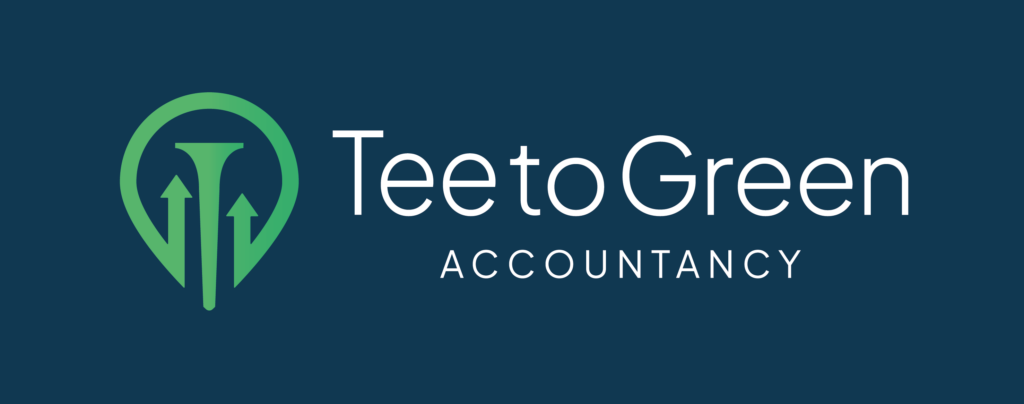GCMA partners Tee to Green and MCB have been analysing the impact of the 2024 Budget.
Tee to Green Accountancy Director Craig Billington acknowledged many golf clubs could be facing some tough decisions in the wake of the 2024 Budget announcement.
Chancellor Rachel Reeves delivered the new Labour government’s first Budget on October 30th and there were several key measures that will impact on golf clubs.
The anticipated rise in National Insurance (NI) contributions from employers was confirmed, along with a notable increase in the minimum wage, raising the likely prospect of needing to offset the additional strain on the budget with an increase in fees.

About Tee to Green
Tee to Green Accountancy is a premier accounting firm specialising in providing tailored financial solutions to golf clubs and related businesses.
Run by golfers, Tee to Green has a keen understanding of the unique challenges and opportunities faced by the golf industry. We offer comprehensive accounting, tax, and financial management services that empower golf clubs to drive their financial success down the fairway.
“The main concern for golf clubs is how they’re going to deal with the increased cost of employing staff,” said Craig.
“There are several measures that will impact on that, including the rise in the minimum wage, which from April is going up from £8.60 an hour to £10 for 18 to 20-year-olds, and £11.44 to £12.21 for those 21 and over.
“This will certainly mean clubs are looking at their budgets and ways to meet those rising costs, as there will be plenty who hire seasonal and entry-level staff who would be on or around minimum wage.”
Craig explained that for an employee who is over 21 working a 40-hour week, the minimum wage — known for that age group as the National Living Wage — will now be £25,397 per annum, a figure which he says may provide better context than the hourly rate.
“What it also means is that if that member of staff is on the auto-enrolment pension scheme, the cost for that employee for the year including NI contributions will be £29,031, which is quite a sum of money for a minimum-wage employee,” he added.
Another consideration is the increase in NI contributions, with the threshold down from £9,100 to earnings above £5,000, at a rate of 15% (up from 13.8%). Added together, the increase in the minimum wage and the NI contributions equates to a 10.2% increase in the cost of employing a member of staff at that salary level.
The rise in Employment Allowance from £5,000 to £10,500 will provide relief for relatively few clubs where the headcount is low.
Craig also cautioned there would be a ripple effect on wages in general, though it is not yet possible to determine the extent of that.
“The lower earners will have to get these increases, so we can calculate the impact of that, but what we don’t know yet is how it will impact on those who earn more,” he said. “They probably won’t get the same level of increase, but that could mean a real-terms wage decrease because places like supermarkets will be paying out more in wages to their minimum-wage staff and that cost will be transferred to the price of goods.
“It will be a case of golf clubs having to find a balance, but it’s not an easy thing to forecast what the outcome will be on wages as a whole.”
Craig also highlighted a change in the business rates relief scheme, where the 75% reduction capped at £110,000 per business will drop to 40% for the 2025/26 tax year in a move he noted as being “significant for golf clubs”.
“This means if a club was getting relief on £50,000 in rates and paying £12,750 this year, next year they’re going to be paying £30,000,” he explained. “However, they have said that they are going to look at reducing that in the long-term for the hospitality and leisure industry.”
Elsewhere, plans to cut alcohol duty on draught products and the decision to extend the 5p fuel duty cut on petrol and diesel for another year provided some positive news.
The Budget will also impact on people’s personal finances and that is where GCMA partners MCB Financial Services come to the fore, with expert advice on issues such as changes to stamp duty.
Adviser Nigel Broom said: “This Budget confirmed numerous measures that will affect the personal finances of Golf Club Managers across the country, and at MCB Financial Services we can help you understand exactly what the impact will be.”
About MCB Financial Services
At MCB Financial Services we take care of the personal and commercial financial needs of our clients, by applying the highest level of skill and expertise to the advice and service provided.
Our aim is to do the best for each client, whatever their circumstances. We provide a personal service where clients are kept up to date and informed throughout the journey, ensuring they have the best advice and products for their needs and requirements.
Contact Nigel Broom: [email protected]

GCMA Partnerships Manager Darren Wood concluded: “It’s fantastic to have the insights from some of our GCMA partners and how the latest budget impacts our members both from a professional and personal aspect. “



